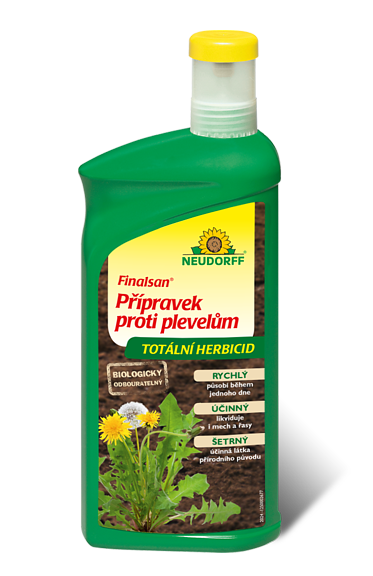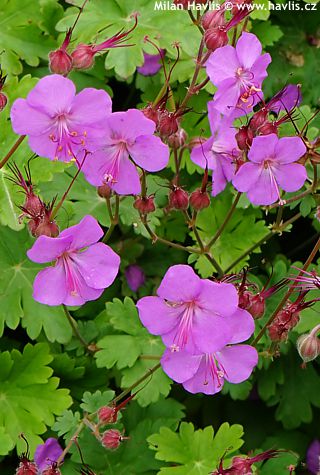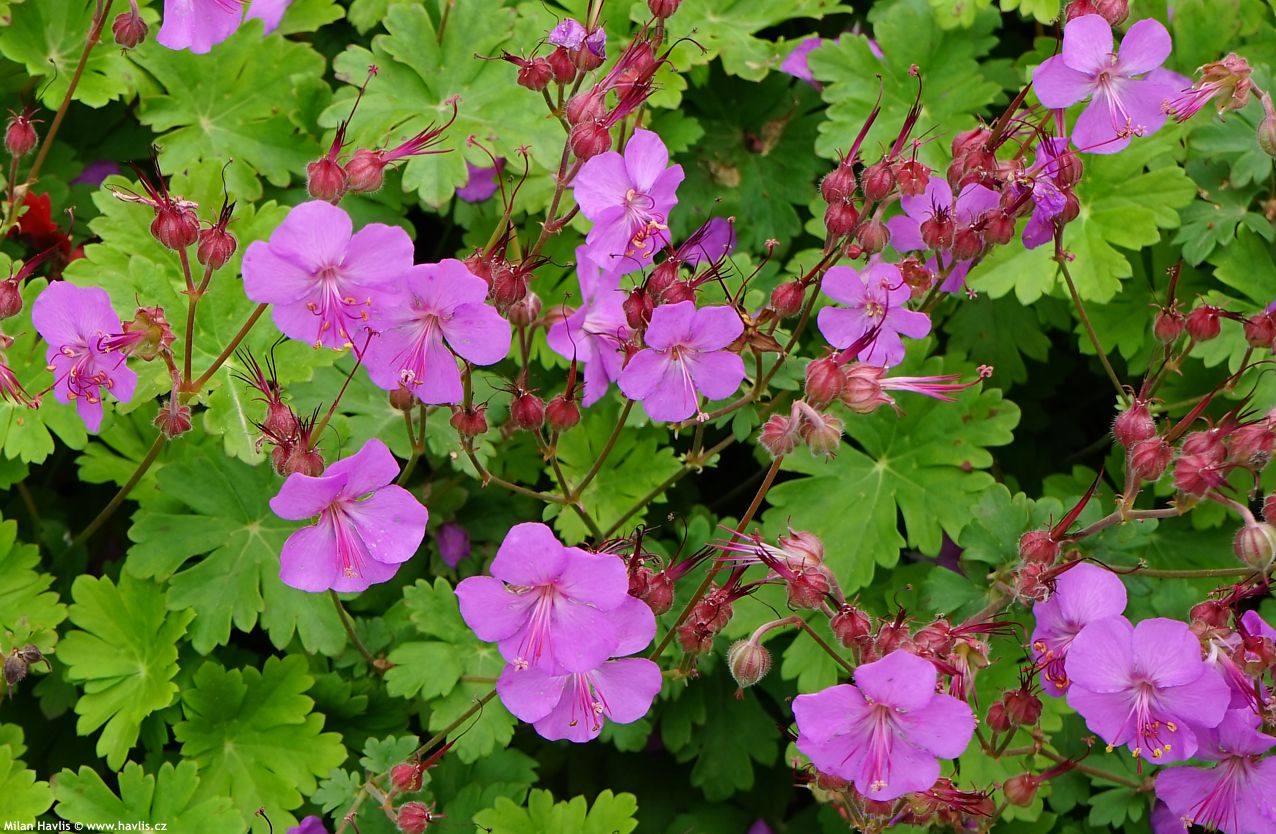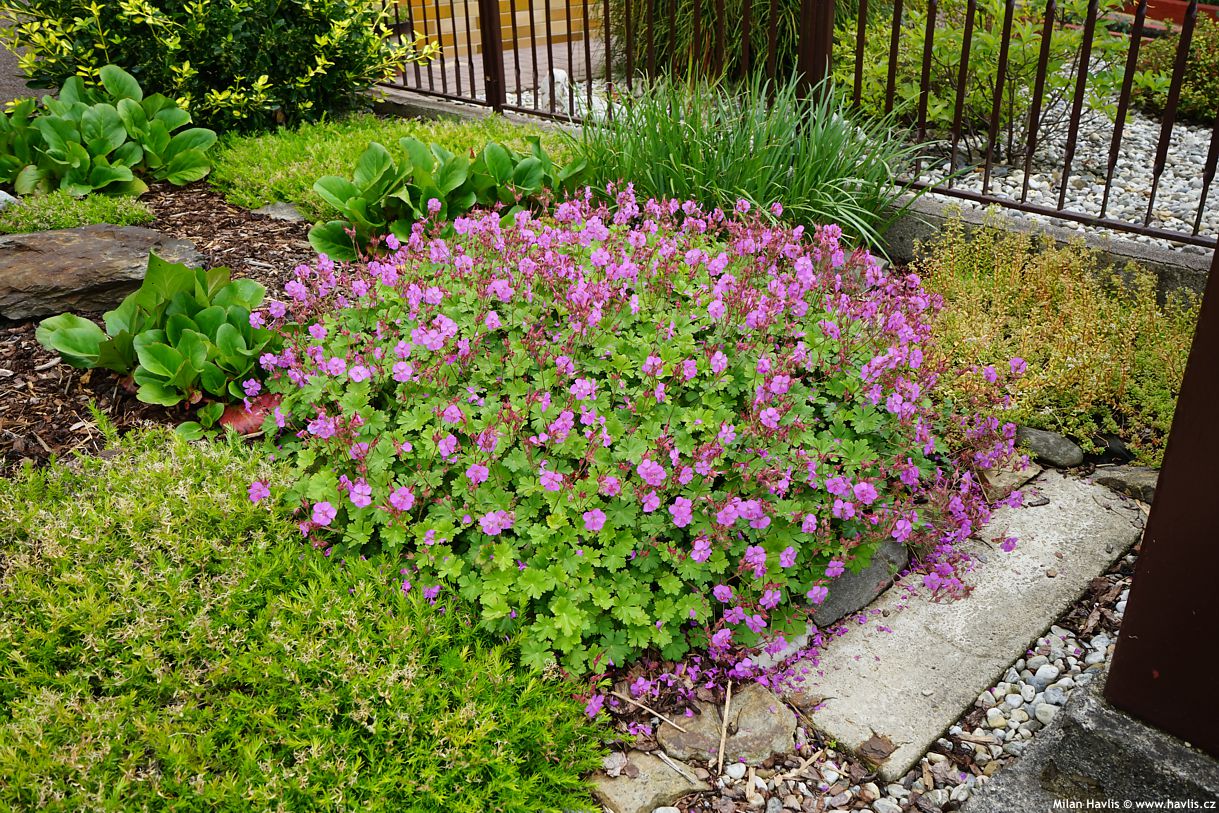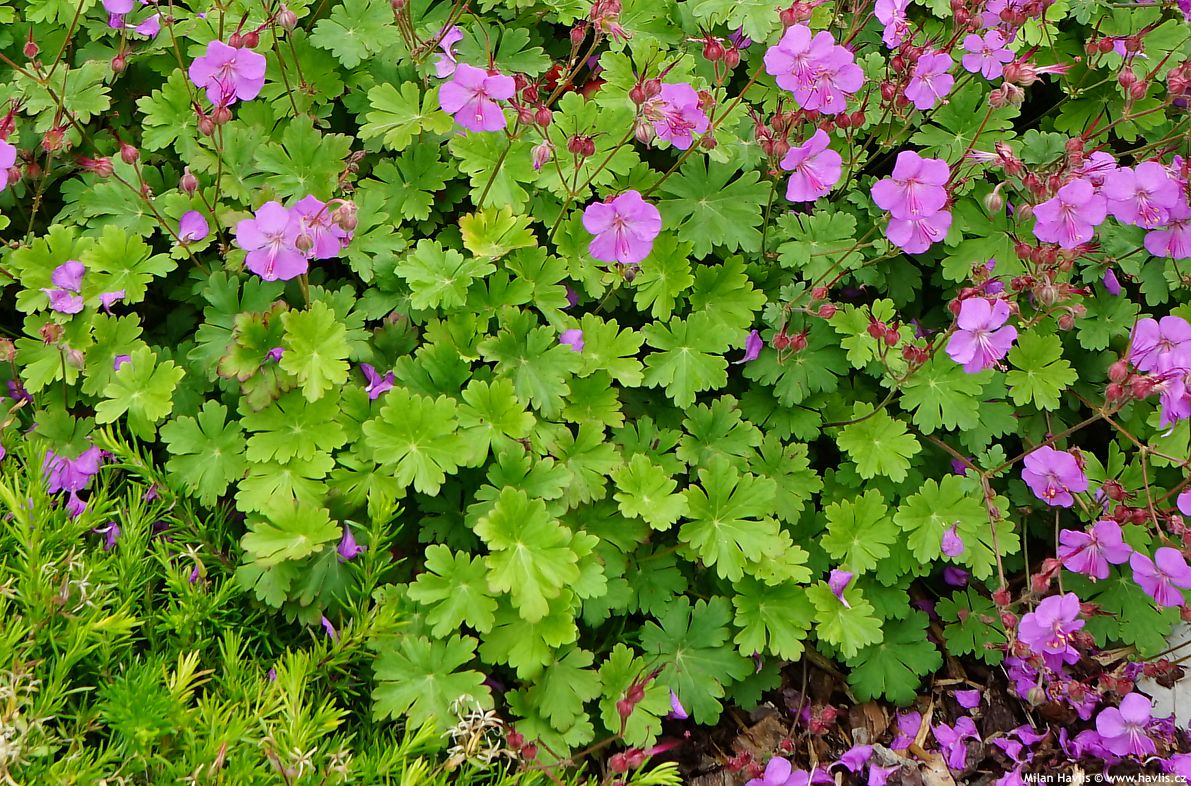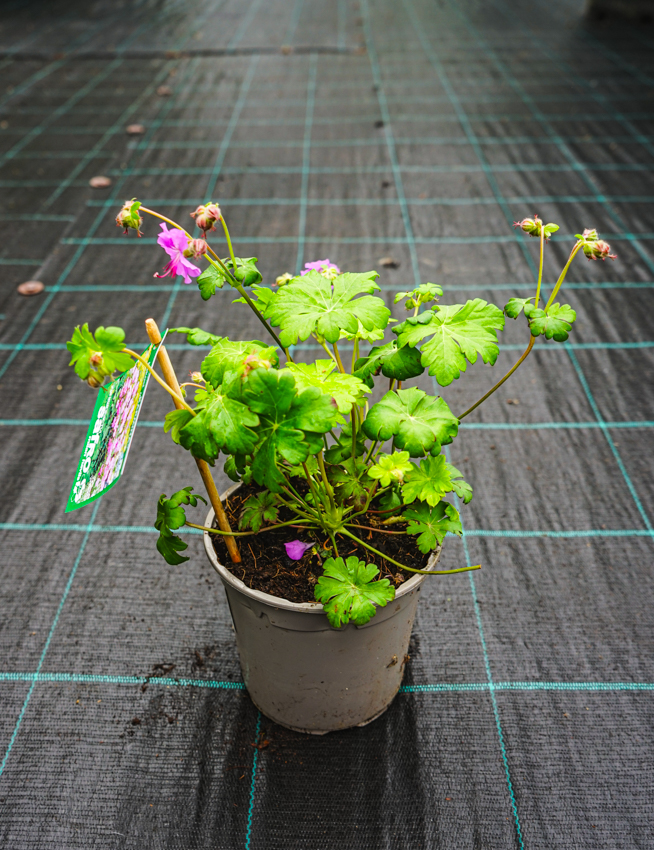Geranium x cantabrigiense 'KARMINA' cranesbill
Geranium
Cranesbills form an immensely rich group of perennials, numbering around 300 species. They are mostly low-growing to ground-covering plants, widely used as a green – and flowering – underplanting beneath trees and shrubs, along borders, or in mixed plantings with other perennials. In full bloom they create a stunning carpet in whichever colour the chosen variety offers. Even after flowering, they remain attractive thanks to their distinctive foliage. Geranium × cantabrigiense is a hybrid between G. dalmaticum and G. sanguineum. It originated in Cambridge, England, from which it also takes its name
Karmina cranesbill forms low, dense, and reliable clumps that spread steadily to create ground-covering cushions about 20–30 cm tall. In late spring and early summer, masses of rosy-lilac flowers rise on slender stems above the lush green foliage, lighting up the plant. Each flower has five broad petals, wide open and delicate, yet striking in effect. After the main flush, occasional blooms may continue to appear later in the season. The palmately divided leaves are rich green and form a compact, semi-evergreen carpet. In autumn they turn shades of red, wine, and purple, adding further ornamental value and remaining attractive well into spring.
This hybrid is undemanding, fully hardy, and long-lived. It is ideal for rock gardens, border edges, underplanting shrubs and trees, or as a groundcover in larger areas, where it reliably spreads into handsome carpets. Thanks to its vigour and resilience, it also suits naturalistic plantings. The flowers attract bees and bumblebees, giving it ecological value as well.
It thrives best in full sun to partial shade in well-drained, moderately dry soil. Although semi-evergreen, it is recommended to cut the foliage back hard in early spring before new growth emerges (a lawnmower works well). The same can be done after the first flush of flowers in summer to encourage fresh, healthy foliage that will remain attractive until the end of the season. Geraniums will grow in almost any ordinary garden soil that is at least moderately fertile and does not dry out completely in summer. They tolerate both full sun and partial shade, flowering abundantly in either. Hardy to at least –29 °C (USDA zone 5).
Last update 11-01-2013; 17-09-2025
Goods are shipped all over Europe. For Russia and U.K. and for further details please read about SHIPPING OPTIONS HERE.
Are you interested in a serious discount for orders NOV-FEB? Check your options here.
THE PRICES INCLUDE VAT of 15%. For quick conversion you can use 1 CZK = approx. 0.04 EUR
- STANDARD QUALITY - Plants of this group are 1st class quality with number of branches and overall density adequate to their size and age, considering they were container grown.
- DE LUXE QUALITY - This label guarantees a luxurious quality of manually selected plants that, compared to their height and age, are exceptionally dense and beautiful.
- EXTRA - These plants are usually mature and bigger specimens with exceptional overall appearance.
- STANDARD (as described in the plant form) means a tree with a trunk of 190-210 cm and a crown at the top, unless specified differently. The commercial size for trees is their girth measured in the height of 1m from ground.
- HOBBY - These plants are of the same quality as our standard-quality plants but younger and therefore cheaper.
- SHRUB - a woody plant with branches growing bushy from the ground level.
- HALF-STANDARD or MINI-STANDARD - a small tree with shorter trunk, its size is usually specified.
- FEATHERED - These are trees with branches growing already from the base of the trunk and up along the stem.
- GRASSES and PERENNIALS - Sizes given usually read the diameter of the pot or the clump, as specified.






























